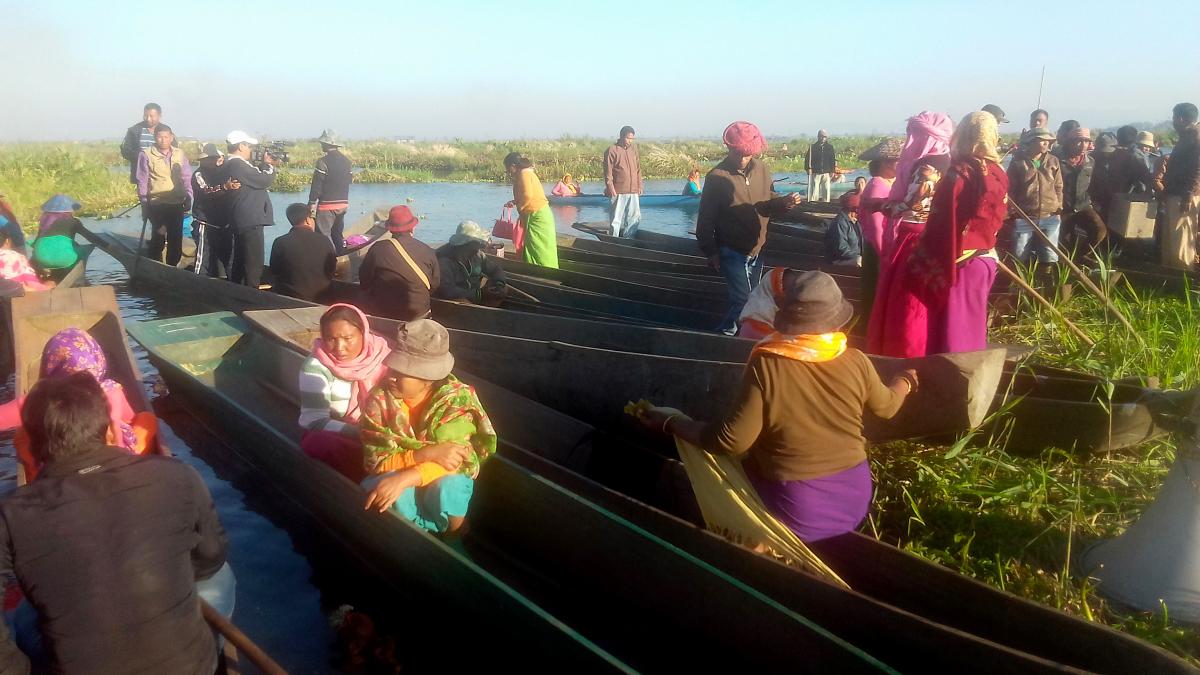IUCN boosts climate change coping initiatives, supports agroforestry in Sikkim, India
As part of the ‘Coping with Uncertainties: Building Community Resilience and Ecosystem Based Adaptation to Climate Change in the Indian Himalayan Region’ project, IUCN took part in the green initiative “A Day for Mother Earth” to raise awareness of the negative impacts of climate change in Mamley-Kamrang Watershed in South Sikkim. The initiative, led by the Sikkim State Government, is celebrated on 7 July every year across the state.

Photo: IUCN India
The role of forest and trees in mitigating climate change and storing carbon in biomass and soil is well recognised. The two-day programme aims to promote agroforestry in the Mamley-Kamrang Watershed, thereby helping farmers and farm systems adapt to climate change.
On 6 July 2019, close to 1,900 saplings of timber, fodder and fruit-bearing trees were planted on land owned by 16 farmers. These lands have signs of soil erosion and low agricultural production capacity, and cover a total area of about 6.55 hectares in Kitchu Dumra, Lower Kamrang ward of the watershed.
On 7 July 2019 IUCN with support from, Forests, Environment and Wildlife Management Department (FEWMD), South Division, Government of Sikkim set up a sapling booth. A total of 400 saplings of native tree species were distributed to 59 farmers from local villages in Kitchu Dumra ward. Mr. Jhony Lepcha, IUCN Project Assistant, said, “It is important to synergise with the government programmes that benefit and increase the awareness of the community on sustainable management of local resources.”
The activity supports the promotion of agroforestry, which helps to improve soil quality, enable more carbon to be sequestered, and increase biodiversity. It can also increase crop production and provide ecological and economic benefits to farmers by boosting organic farming even in the face of climate change.
Through the ‘Coping with Uncertainties’ project, IUCN works in collaboration with the state government and line departments to increase the forest cover in the project areas and encourage agroforestry plantations while promoting Ecosystem-based Adaptation against climate change to reduce vulnerability of farmers. This project is implemented under the umbrella of the National Mission on Himalayan Studies (NMHS), Government of India.



